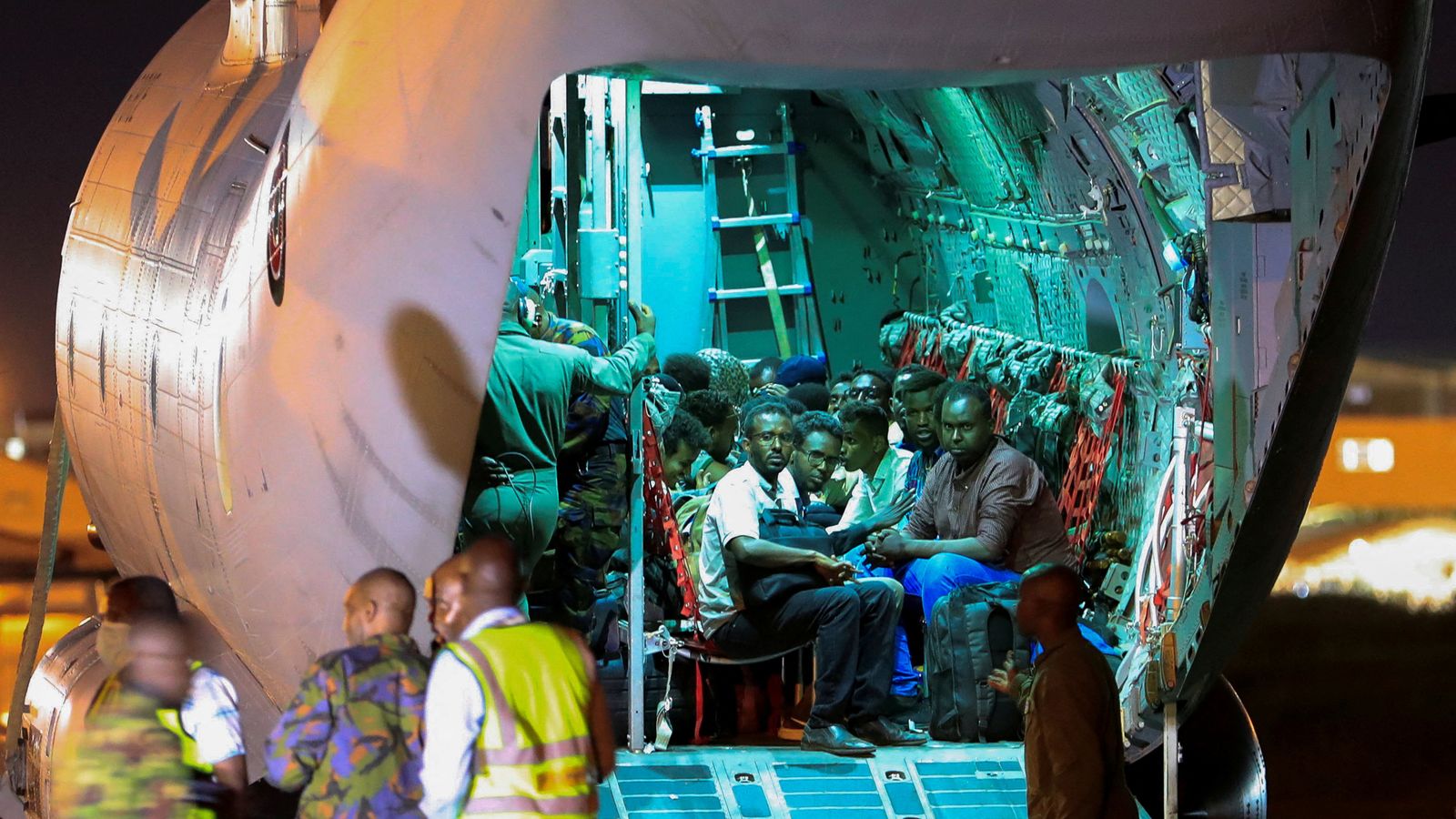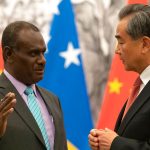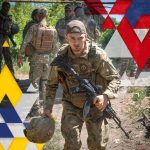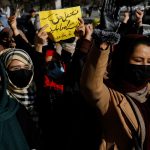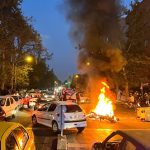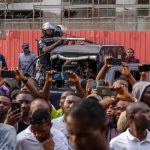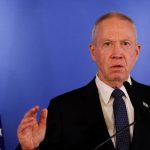A 72-hour ceasefire between Sudan’s two warring factions is underway as the UK government faces pressure to “not miss the window” of opportunity for evacuations and delivering urgent aid.
The US-Saudi mediated truce between the Sudanese military and Rapid Support Forces (RSF) paramilitary group began on Monday night and followed two days of intense negotiations.
The two sides have not abided by several previous temporary truce deals – but both confirmed on Monday that they had agreed to the ceasefire.
US secretary of state Antony Blinken said Washington urged both sides to “fully uphold” the ceasefire.
At least 427 people have died since the fighting erupted over a power struggle between the rival factions in the capital Khartoum 10 days ago and has trapped millions of Sudanese citizens.
Food and fuel have soared in price, electricity and internet are cut off in much of the country and the clashes have left foreign governments scrambling to get their citizens and diplomats out.
Mr Blinken said the US would coordinate with regional, international and Sudanese civilian interests to create a committee that would oversee work on a permanent ceasefire and humanitarian arrangements.
However, the UK has been warned that it must act quickly to “not miss this window of opportunity” during the ceasefire to get aid into the country and carry out evacuations.
Please use Chrome browser for a more accessible video player
The chair of the Foreign Affairs Committee, Alicia Kearns tweeted: “This is a significant opportunity to get urgent humanitarian aid, especially water, into Sudan and to get our people evacuated, prioritising families and children.
“Every hour counts. We must act quickly and not miss this window of opportunity, as it is quite likely the ceasefire will not hold.”
There are understood to be around 4,000 British passport holders in Sudan.
On Monday, Africa minister Andrew Mitchell appealed to all of them to register their details with the Foreign Office and said their “safety and security remains the upmost priority” for the government.
While the government has advised those on the ground to “stay indoors where possible” and wait to hear an update on how they can leave the country, some British nationals have said they felt “abandoned” after diplomats were rescued in a night-time mission, and were organising their own routes out of the country.
Click to subscribe to the Sky News Daily wherever you get your podcasts
Meanwhile, Downing Street confirmed the British ambassador to Sudan, Giles Lever, and his deputy were out of the country when violence broke out in Khartoum.
The prime minister’s official spokesman said: “I think it was around the time of Ramadan, that they were out of the country at that point.”
Read more:
Which countries have evacuated their citizens from Sudan?
Why evacuating civilians is different to extracting diplomats
They added that “very senior staff” were still in the country and both those in the country and the ambassador “have been working around the clock to aid efforts”.
Downing Street has said that “all possible options” to evacuate citizens are being considered.
Please use Chrome browser for a more accessible video player
It is thought that if used, Royal Fleet Auxiliary ship Cardigan Bay – currently in Bahrain, and HMS Lancaster – in India, would provide seaborne support to supplement possible flights out of Sudan.
Any mission would be highly complicated, however, with Port Sudan more than 500 miles from Khartoum.
The current explosion of violence comes after two generals fell out over a recent internationally brokered deal with democracy activists, which was meant to incorporate the RSF into the military and eventually lead to civilian rule.
In 2019, Islamist autocrat Omar al-Bashir was overthrown in a popular uprising and the army and RSF jointly mounted a 2021 military coup. But the relationship between the two factions broke down during negotiations to integrate and form a civilian government.
